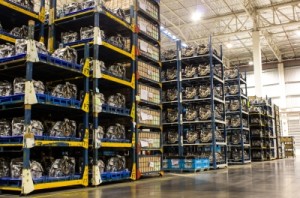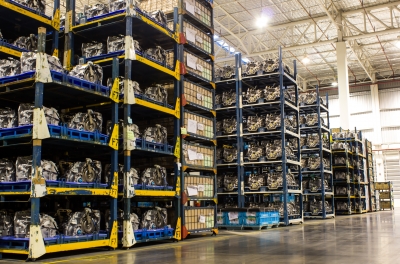 Philippine Bureau of Customs (BOC) stakeholders should expect more changes in operations at the country’s second-largest revenue-generating agency.
Philippine Bureau of Customs (BOC) stakeholders should expect more changes in operations at the country’s second-largest revenue-generating agency.
At the recent general membership meeting of the Philippine International Seafreight Forwarders Association, Customs deputy commissioner for Assessment Operations and Coordinating Group Atty. Agaton Teodoro Uvero identified the following potential reforms:
- Requirement of load port survey for containerized cargoes. Right now such a survey is only required for bulk and breakbulk shipments. Exemptions on the survey for boxed cargo may be given to shipments destined for Philippine Economic Zone Authority areas and the Super Green Lane (SGL) program.
- Automation of operations related to customs bonded warehouses, including informal entries under electronic-to-mobile (e2m), while “looking at centralizing the assessment” at the Ninoy Aquino International Airport, Uvero said.
- Expansion of SGL program, “making it a more institutionalized program tying it up with the Authorized Economic Operator (AEO) program” and requiring online application for all documents.
- Improvement in the selectivity process, with BOC conducting a risk profile on importers, categorizing them from low- to high-risk shippers.
- Reshuffle of personnel manning x-ray machines to avoid familiarity and to establish accountability.
- Amendment to guidelines on the submission of electronic manifest for ocean shipments. Some of the potential changes to these guidelines are the lesser penalties for late submission of manifests, and the specific time of submission of the e-manifest (whether inward foreign manifest or consolidated cargo manifest).

Uvero said the amendments will likely be released about the same time as the rules on electronic air manifests. Deputy Commissioner for the Management and Information System Technology Group Primo Aguas is reportedly eyeing a March release for the latter.
- Decision on rates to be charged by off-dock container yard/container freight stations.
For now, Uvero said Customs Commissioner John Phillip Sevilla is looking at whether rates charged by off-dock CY/CFS operators can be subject to market forces. If such a policy is adopted, this could mean a rescission of Customs Memorandum Order 24-2001, which prescribed off-dock CY/CFS rates 13 years ago.
“We’re asking JICA (Japan International Cooperation Agency) and USAID (United States Agency for International Development) to look at the logistics side of customs operations,” Uvero said, noting that one of the areas being studied is whether on-dock CY/CFS operations can handle all LCL requirements.
- Accreditation of consolidators of balikbayan (personal effects) boxes.
“We’re looking at accrediting (consolidators) so if you’re not accredited, you cannot bring in balikbayan boxes,” Uvero said.
There have been many reports of overseas Filipino workers losing their balikbayan shipments to rogue forwarders.
Seafreight forwarders, including those that handle balikbayan boxes, are accredited by the Department of Trade and Industry through the Philippine Shippers’ Bureau. There are moves to transfer the accreditation function to the Maritime Industry Authority under the Department of Transportation and Communications.
- Use of ASYCUDA (Automated System for Customs Data) in place of the current e2m system or even its updated version, the Integrated Philippines Customs System (IPCS). The latter’s fate has yet to be decided by the courts after a losing bidder obtained a temporary restraining order against the awarding of the project contract to the winning bidder.
Uvero said ASYCUDA will be used because it comes free. IPCS, on the other hand, has a P418-million price tag.
Developed in Geneva by the United Nations Conference on Trade and Development, ASYCUDA is a computerized customs management system that covers most foreign trade procedures, handling manifests and customs declarations, accounting procedures, transit and suspense procedures. –– Roumina M. Pablo
Image courtesy of Photoraidz / FreeDigitalPhotos.net





